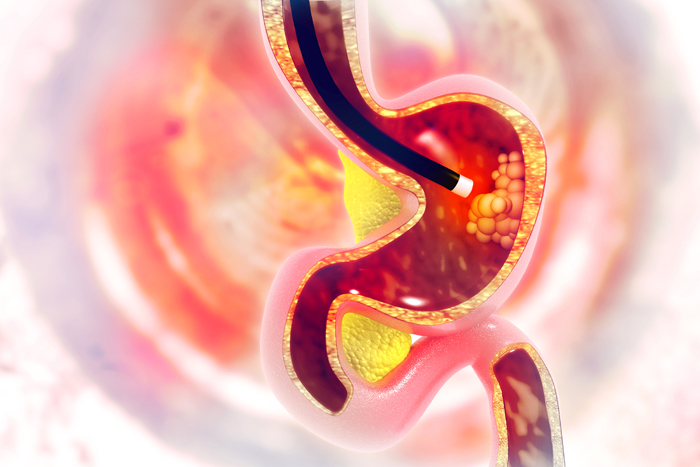Endoscopy Services Treatment & Diagnostics in Karol Bagh, Delhi
Endoscopy Services
Overview of Endoscopy
Endoscopic surgery is carried out utilizing a scope, flexible camera tube, and tip light. It enables your surgeon to look into your colon and carry out treatments without big incisions that facilitate recovery with less pain and suffering. The most common application of endoscopic procedures is for diagnosis.
If you're considering an endoscopy procedure, you should choose endoscopy surgery in New Delhi for the best treatment.
Request an appointment at Apollo Spectra Hospitals, Karol Bagh, New Delhi
Call 1860 500 2244 to book an appointment
About Endoscopy
Endoscopy is a technique that utilizes an endoscope to examine the organs within your body. An endoscope is a thin, long tube with a light and a camera connected to one end. A television screen displays images of the interior of your body.
Endoscopes insert into the body by the mouth and down the throat or via the bottom. When keyhole surgery is performed, an endoscope can also insert into the body via a small cut (incision) in the skin.

Who qualifies for the Procedure?
Endoscopy is recommended by doctors when there is:
- Unexplained abdominal discomfort
- Constant bowel movements (diarrhea; constipation)
- Chronic heartburn or chest discomfort
- Intestinal bleeding or blockage signs
- Stool with blood
- Family history of colon cancer
Why is Endoscopy Conducted?
An endoscopic procedure may recommend by your doctor if:
- Look into the causes of the symptoms you're experiencing. An endoscopy can help your doctor figure out what's causing digestive symptoms, including nausea, vomiting, stomach discomfort, swallowing difficulties, and gastrointestinal bleeding.
- Diagnose. A tissue sample (biopsy) may be collected via endoscopy to check for anemia, inflammation, blood, diarrhea, or cancer of the digestive system.
- Treat. Your doctor may use the endoscope to treat your digestive system issues including bleeding via the burning of a bleeding vessel, an enlarged esophagus, polyp removal, or removal of an external item.
Benefits of Endoscopy
- Because an endoscopy may be used to diagnose and cure issues in the digestive system, it can help the patient prevent acquiring significant medical disorders. The doctor can also determine the onset of any gastrointestinal illness or disease early on.
- Endoscopy is a painless, quick, low-cost, and low-risk treatment. Because the body's natural orifices utilize the organs, there will be no scars after the surgery.
Risks or Complications related to Endoscopy
An endoscopy is quite safe. Rare complications are:
- Bleeding. Your risk of bleeding problems after endoscopy raises if a part of the tissue is removed to test (biopsy) or if a problem with the digestive system is treated. In rare cases, a blood transfusion may be necessary for this kind of bleeding.
- Infection. Most endoscopies examine and biopsy and there is a minimal risk of infection. The risk of infection rises if other procedures are performed as part of your endoscopy. Most infections are mild, and antibiotic treatment is possible. The doctor may prescribe preventative antibiotics before operation if you are more vulnerable to infections.
- Gastrointestinal tract tearing. A rip in the esophagus or another section of the upper digestive tract may necessitate hospitalization and, in some cases, might require surgery. This is extremely rare - it happens around once in every 2,500 to 11,000 diagnostic upper endoscopies—the risk increases when additional operations are performed, including dilatation to widen your esophagus.
You may reduce your chances of complications by following your doctor's instructions for endoscopic preparation, such as fasting and discontinuing certain medications.
The rate of success of endoscopy varies based on the patient's age. It also depends on -
-
The region being examined
The doctor's experience and skill
The type of endoscopy
The patient will give a local anesthetic to numb the particular region of the body during endoscopy. Thus, most people who have endoscopy do not suffer pain and may experience discomfort, indigestion, or sore throat.
Endoscopy may identify the existence of colon cancer and ulcers. Lung tumors can be detected using endoscopic ultrasound, and fatty liver can be detected using upper endoscopy.
Yes. Endoscopy must be a medical procedure used to see and examine the internal organs and sections of the body through a natural opening or with a minor surgical incision. A gastroscopy, on the other hand, is a kind of endoscopy that examines the upper gastrointestinal organs, including the stomach, esophagus, and duodenum.
Our Top Specialities
NOTICE BOARD
CONTACT US
CONTACT US
 Book Appointment
Book Appointment


.svg)
.svg)
.svg)
.svg)








